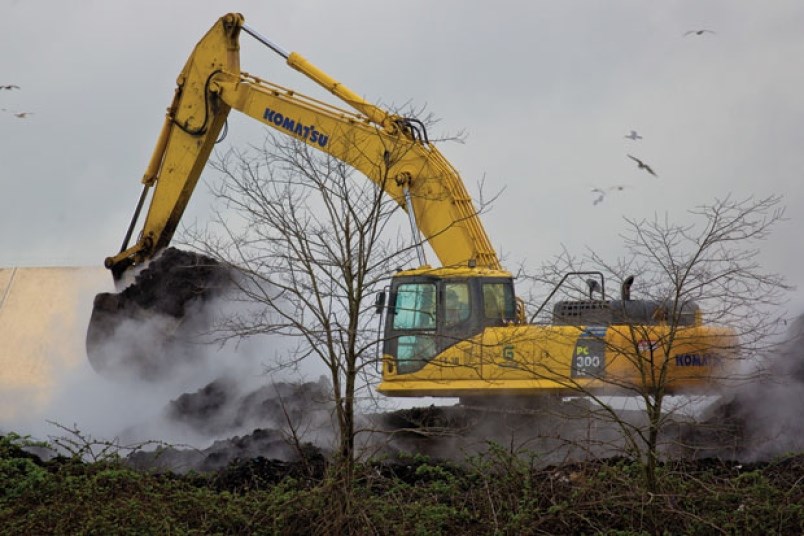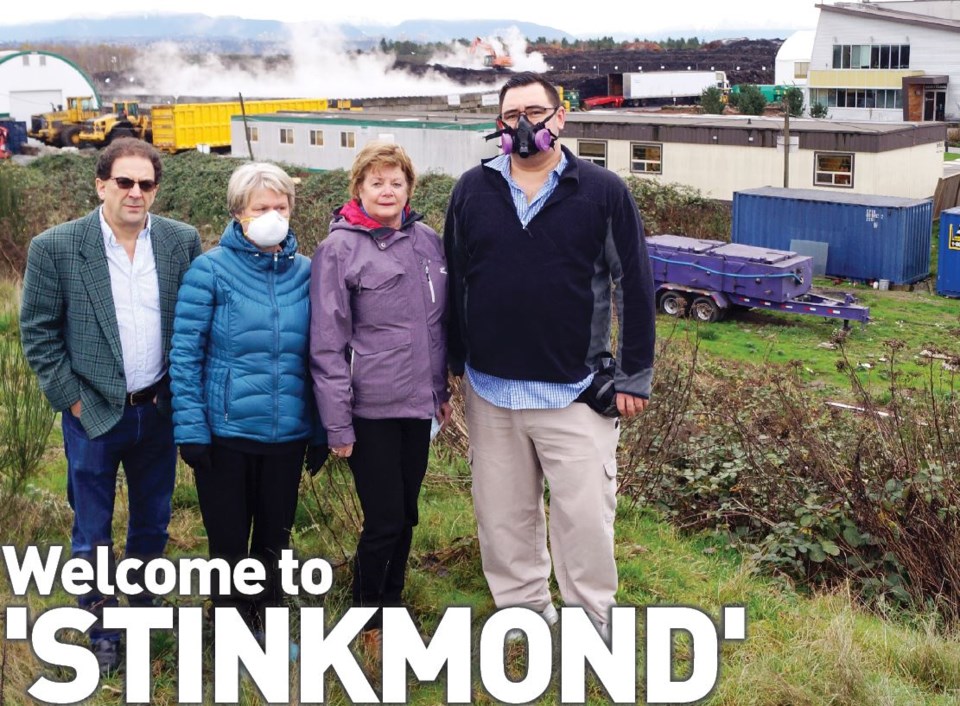Last month marked an 18-month high for complaints to Metro Vancouver naming Harvest Power as the source of overpowering, rancid odours lingering across Richmond.
However, one new and one traditional source of odour could be putting noses on the wrong scent.
First, a composting facility in Delta, Enviro Smart, may be confusing residents. Second, chicken manure, being spread on farmland and the Garden City Lands, has also been identified by Metro Vancouver officials as a source of complaints (as opposed to Harvest Power), according to Metro Vancouver Environmental Regulation and Enforcement Manager Ray Robb.
In May officials did not verify odours emanating from Harvest Power, in east Richmond, said Robb.
“Data doesn’t support Harvest is responsible for many of the complaints.
“Verified complaints due to Harvest are down but they’re still substantial,” he said.
According to many residents, Harvest Power is still emanating odours.
“I think people who live close by or in the east side of Richmond, near Ironwood, are just beside themselves,” said Arnold Shuchat, an organizing member of Stop the Stink Richmond, a growing group of residents seeking a permanent solution to odours emanating from organic waste to energy company Harvest Power.
“I can see this sticking as an election issue,” he said.
Shuchat will help lead a group of residents to contest Harvest Power’s air quality permit this September at the Environmental Appeal Board.
In May, there were 168 official complaints to Metro Vancouver naming Harvest as a suspect. That’s the most complaints fielded since January, 2017.
But company spokesperson Stephen Bruyneel is blaming the manure and Enviro Smart.
“That proves the spike in odour complaints is not us,” said Bruyneel.
Robb concurred Delta’s Enviro Smart processing plant may also be adding rotten smells into the local air.
“When the wind is coming from the southeast it’s more likely it’s Enviro Smart and this is particular in the Steveston area,” said Robb.
That facility has increased its organic waste intake recently, particularly from the City of Richmond, which diverted its detached home waste there, from Harvest Power, in January.
“In some sense it has moved the problem,” said Robb.

According to Robb, Harvest has stopped taking waste to one of its compost piles after failing to upgrade it in February, as part of the company’s air quality permit. Bruyneel said there continues to be improvements to the facility and the company is taking in less waste than it was at the peak of complaints in fall 2016.
Compost odours emanate from piles of outdoor waste. Harvest Power has been fined seven times for bylaw violations over the past three years, including three fines last December.
According to Metro Vancouver there are about 50 complaints against Harvest Power in a typical month, over the past year and a half. Complaints were cut in half last year, compared to 2016, after enforcement measures ramped up. In that same time complaints across the region from other facilities and unknown sources increased about 40 per cent.
Robb said he is granted authority to issue or not issue permits. Permits are issued, he said, to balance the ability of businesses to operate and to protect air quality for residents.
Shuchat said residents should be cognizant of Harvest Power’s modus operandi:
“They’re a business, plain and simple. [Harvest] may tell us this (composting) is done for the greater good and what not, but at the end of the day Harvest is a business trying to make a buck. And who gives them the right to stink it up for all us residents?”
Robb explained that an air quality permit is a “roadmap to success.”
In the case of Harvest Power, over time the requirements have become stricter. Presently, Harvest Power may emit verifiable odours (via a “sniff test” from officials) up to three days in a two week period beyond a four kilometre radius. In January that requirement becomes two days in two weeks and beyond three kilometres.
Although the odours are strong, they are not considered to cause illness, according to Vancouver Coastal Health. However they may inflame existing respiratory conditions, such as asthma.



